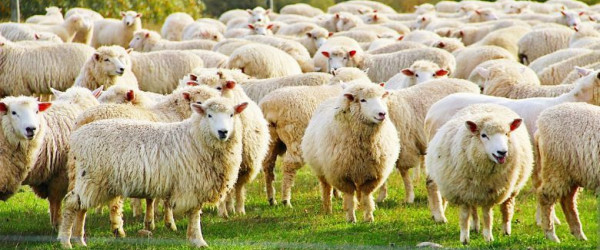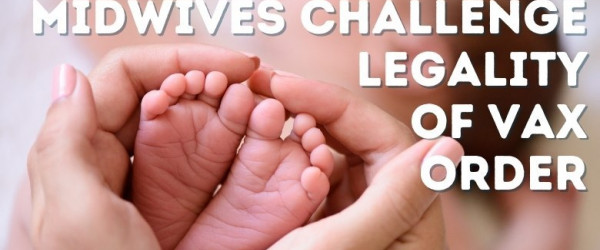
Farm Emissions Tax Submission Support
You have until 11:59pm this Friday to send your submission
Please send your submissions to [email protected]
Instructions: Put your submission into a word document and attach that document to your email.
Choose from any or all of the points 1-9 in the example submission below. You can use as much information contained below as you feel necessary. If you have any personal testimony to add that would be ideal, but is not necessary.
To the Ministry for the Environment,
I oppose the Government’s proposal to tax agricultural emissions for the following reasons:
Point #1: New Zealand is already a low emissions country The Consultation Document begins with the words that “further work is needed to help Aotearoa New Zealand become a low-emissions country.” The premise of the Consultation Document suggests New Zealand is not a low-emissions country. New Zealand is already a low-emissions country:
- as a nation, New Zealand accounts for 0.09% of global CO2 emissions;
- its gross emissions contribute approximately 0.17 % of the world’s gross emissions.
New Zealand is rated 24th among the 45 Annex I countries recorded in United Nations Climate Change Annex I.
By any measure, we are already doing a great job and are a low emissions economy when you compare New Zealand to other countries such as:
- China that has 1,110 coal operated power plants
- India has 285 coal operated power plants
Source: https://www.statista.com/statistics/859266/number-of-coal-power-plants-by-country/
Point #2: New Zealand’s pastoral agriculture is already amongst the most carbon efficient in the world
New Zealand’s pastoral agriculture is recognised amongst the world’s best in its practices and emissions profile.
A September 2022, AgResearch study confirmed:
“the full life-cycle carbon footprint of New Zealand’s beef & sheep meat has found that it sits at the lower end of published estimates among producers globally, despite distance from markets.”
Source: https://www.sciencedirect.com/science/article/pii/S0195925522002128?dgcid=raven_sd
The AgResearch study, commissioned by Dairy NZ, was independently produced and peer reviewed by an international specialist in Ireland.
The AgResearchers comprehensively analysed 55% of global milk production and found New Zealand’s carbon footprint is 70% lower than the global average and 46% lower than the 17 other countries involved in the study (including all major milk producers).
The comprehensive study by AgResearch has found that a kilo of New Zealand sheep meat has a carbon footprint of just under 15 kilograms (kgs) of CO2 equivalent emissions per kilo.
Meanwhile, the carbon footprint of New Zealand beef is just under 22kgs– making the country’s red meat among the most efficient in the world.
Point #3: The tax is in direct breach of the Paris Agreement codified in New Zealand law as the tax is a direct “threat to food production”
The Paris Agreement is set out in the Climate Change Response Act 2002 at Schedule 2A. Article 2 of the Paris Agreement and Schedule 2 of the Climate Change Response Act 2002 expressly states:
“This Agreement, in enhancing the implementation of the Convention, including its objective, aims to strengthen the global response to the threat of climate change, in the context of sustainable development and efforts to eradicate poverty, including by: …
(b) Increasing the ability to adapt to the adverse impacts of climate change and foster climate resilience and low greenhouse gas emissions development, in a manner that does not threaten food production; and With an estimated 20% decrease in the red meat sector, food production is threatened.
Point #4: The tax will cause a direct decrease in exports
Food and fibre made up 81.4% of New Zealand’s exports for the year to 30 June 2022.
The food and fibre sector accounts for 11 percent of New Zealand’s GDP and employs 367 thousand people.
Source: https://www.rnz.co.nz/news/country/468794/primary-industry-exports-on-track-to-hit-52b-record-high
An estimated 20% decrease in the red meat sector as a consequence of the tax, will see a direct impact on our exports.
Over the last three years, the agricultural sector has kept the economy going where public health measures decimated our other core export, tourism. International tourism makes up New Zealand’s second largest export, around 5.8% of GDP, tourism and hospitality businesses have lost significant business with no tourists and through lockdowns.
Source: https://www.ncbi.nlm.nih.gov/pmc/articles/PMC8007940/
Point #5: Production will move overseas to less desirable countries not achieving the low carbon footprint NZ is with its agricultural industry
Globally, food supply is limited.
With New Zealand already producing food for other countries at nil to negligible emissions rates.
Source: https://di.unfccc.int/time_series
As New Zealand is producing food that would otherwise be produced in other countries, but with far greater emission rates and therefore being produced at a greater detriment to the global environment.
Point #6: Productive farmland will be converted to forestry
The proposed legislation will further incentivise the conversion of agricultural land into forestry. The devastation of this trend to turn productive, prime pastoral farmland into forestry is evident throughout New Zealand.
Looking forward, food production is one of the most important industries to be protected for the benefit of New Zealanders.
You can’t eat pine trees!
Communities have been devastated by the move to convert fertile, productive food growing land into forestry. For example, it has meant fewer amenities such as schools and health services.
Point #7: The tax will increase the cost of living, which is already on the rise
The tax will have an impact on the cost of living, increasing it in two ways.
First, the tax is an increased cost that will be passed on from farmers to the consumers making food more expensive.
Secondly, the tax will also create a decrease in production lowering the supply equilibrium. Both will have a negative impact on the price of food and the consequential cost of living will increase further.
New Zealand’s cost of living has risen dramatically in the last year. Inflation is at an all time high, the interest rates are increasing resulting in an increase in mortgage repayments. The cost of living in New Zealand is more expensive than in 78% of countries in the World.
Source: https://expatistan.com/cost-of-living/country/new-zealand
Recent surveys clearly show that the cost of living crisis is the number one issue on Kiwi’s minds.
Source: http://familyfirst.org.nz/wp-content/uploads/2022/11/Major-Issues-Poll-Results-November-2022.pdf
Given the recession the economy is facing and the warnings given by the Treasury for the coming years, it is incredible to think that “carbon neutral” meat/dairy is at the forefront of the mind of the folks when grocery shopping. People are looking to feed themselves and their families as best as they can, with the cheapest products available. Let’s not cut off our nose to spite our faces. Given these circumstances it would be foolish to proceed with the tax proposed.
Point #8: There will be significant negative impacts on rural communities
The Consultation Document has already identified significant negative impacts of the tax on rural communities, including:
- a significant change in spending across rural communities;
- reduction in jobs or hours worked;
- further de-population and accompanying decline in community services;
- reduction in quality of living;
- increased stress and mental health issues.
Source: https://environment.govt.nz/assets/publications/Pricing-agricultural-emissions-consultation-document.pdf Section 4.4 (pg 66)
These issues are in addition to the impacts of the costs of living.
Point #9: The tax is a direct assault on rural well being and mental health.
It is well known that suicide rates are higher for rural areas of New Zealand. Maori New Zealanders are more likely to reside in rural areas, and also make up a larger proportion of the more deprived population living rurally. The government’s own policy document lists increased stress and mental issues as a potential consequence of the policy – therefore this policy knowingly risks causing disproportionate harm to those living in rural settings including Maori:
” Suicide rates are slightly higher for people in rural areas than in urban areas. This contrasts with the lower levels of mental health service use for people in rural areas reported in the previous section.”
Source: https://www.mentalhealth.inquiry.govt.nz/assets/Summary-reports/Otago-mental-health.pdf
There is evidence of differential health outcomes between rural and urban populations. Approximately 22% of the New Zealand population live in diverse rural locations and there are considerable challenges in accessing consistent and comprehensive health care for these communities.
Māori have the right to good health and healthy conditions. As Māori are more likely to reside in rural areas, and also make up a larger proportion of the more deprived population living rurally, fulfilling the right to health for rural Māori is vitally important. Statistical information on the health of rural Māori can provide baseline information, reveal areas of need and inequity, and serve as a useful source of data to support the aim of the health and disability sector to improve the health of Māori and reduce inequalities.
https://www.scoop.co.nz/stories/GE2204/S00022/bridging-the-divide-between-the-health-sector-and-rural-new-zealand.htm
Conclusion:
It is imperative that a holistic risk benefit analysis is conducted – the effect of a 10-15% reduction in emissions will make little overall difference to the environment but the impact and consequential cost will be huge.
For example, Based on the research, an analysis by B+LNZ and MIA shows eating red meat 2-3 times a week over the course of an entire year is just under the carbon footprint of a single passenger’s return flight from Auckland to Christchurch.
Source: https://beeflambnz.com/news-views/important-new-research-nz-beef-and-lamb-carbon-footprint
It is for these reasons, I reject the proposal to implement a tax on emissions on agriculture.
DOWNLOAD THE WORD FILE HERE
Thanks for reading and sharing! Remember to sign up to our mailing list to keep up with the latest news.
If you value what we are up to at Voices and would like to support our ongoing work you can donate to us and support our nationwide public education campaigns (webinars, flyers, billboards...) and other initiatives to speak up and push back for your freedoms.




